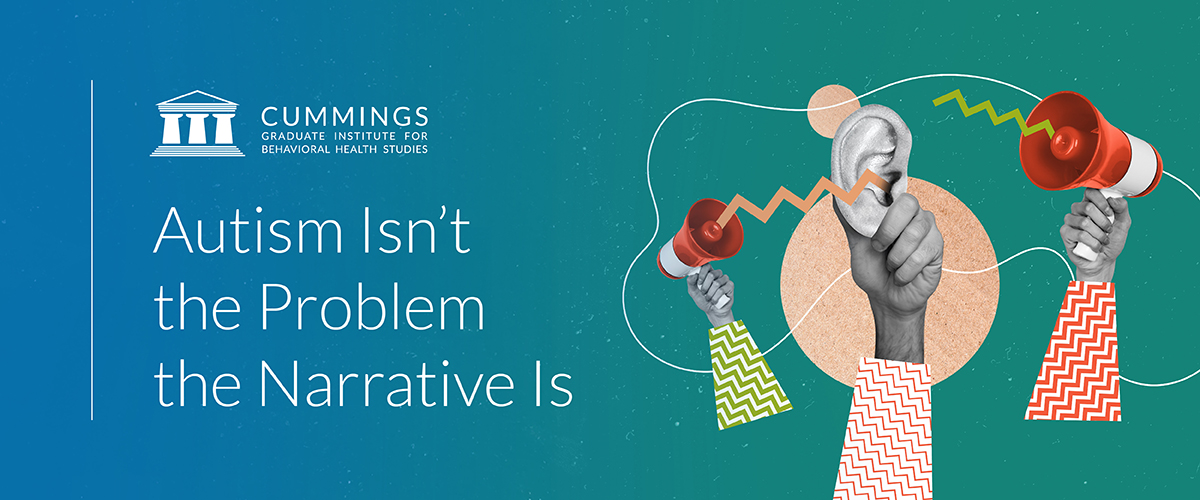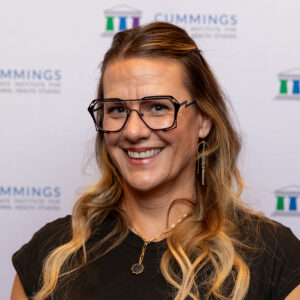
Reducing autism to a political talking point only deepens the divide between awareness and understanding.
Conversations around autism have entered mainstream political discourse, often carrying language that can inadvertently or sometimes overtly shape public perception and influence healthcare policy. While autism has always been a deeply personal topic for families and professionals, the latest wave of politicized commentary demonstrates a critical truth: the way we talk about autism matters, especially when it comes from individuals in positions of influence.
In April 2025, United States Secretary of Health and Human Services, Robert F. Kennedy Jr. made remarks that cast autism as a “tragedy” and inaccurately characterized the majority of autistic individuals as severely impaired. His statements, made in response to a new CDC report estimating autism prevalence at 1 in 31 among 8-year-olds, sparked strong responses from medical professionals, autistic individuals, and behavioral health experts alike.
The Problem with Oversimplification
Kennedy’s comments, which included assertions that most autistic individuals will “never use a toilet unassisted” or “go on a date,” have been widely refuted. According to a 2023 study co-authored by CDC researchers, only about one-quarter of individuals on the spectrum have severe limitations and even within that subset, capabilities and outcomes vary widely.
“Autism is described as a spectrum because it encompasses a wide range of strengths, challenges, and experiences. Autistic advocates and their allies have worked tirelessly to combat ableist language that paints autism as a catastrophic disease. Unfortunately, RFK’s statements stigmatize neurodivergence and exploit vulnerable caregivers.” said Dr. Pauline T. Pablo, Cummings Graduate Institute, Doctor of Behavioral Health Alumna. “Leaders should promote inclusion, accessibility, and individualized strength based support for autistic individuals and their families. The oversimplification of their experience is harmful as each autistic experience is unique.”
Caregivers Caught in the Gap
While much attention has focused on Kennedy’s language, behavioral health professionals are also urging empathy for caregivers, especially those raising children with high-support needs. These caregivers often feel unseen by the system and may gravitate toward emotionally validating rhetoric, even if it’s scientifically flawed.
“When a child is diagnosed with autism, the responsibility of obtaining multidisciplinary services falls heavily on caregivers. They are usually handed a list of service providers and are expected to navigate through our fragmented healthcare system on their own. Families are placed on long waitlists without access to essential patient education about neurological differences or evidence-based strategies to effectively support their child. This places them in a vulnerable state and only some providers are willing to take on the non-billable task of providing that extra support.” said Dr. Pauline T. Pablo.
This insight reflects a major concern within the integrated care community, when families are left without clear pathways to care, they become more vulnerable to misinformation.
DBHs as Advocates for Evidence-Based and Individualized Care
Doctor of Behavioral Health (DBH) professionals are uniquely equipped to respond to these challenges. Trained in whole-person care and interdisciplinary collaboration, DBHs can advocate for accessible, individualized, and neuroaffirming treatment plans that account for co-occurring medical, behavioral, and emotional conditions.
“The emphasis on finding a single neurotoxin as the cause for autism is concerning, as it ignores variables such as genetics, brain composition, perinatal conditions, and other scientific findings that inform best practices. Narrowly focusing on one environmental factor is counterproductive and undermines evidence-based methods to providing a whole-person approach to care.” said Dr. Pauline T. Pablo. “Autistic individuals are already vulnerable to diagnostic overshadowing which occurs when mental or physical health concerns are overshadowed by their autism diagnosis. Pathologizing autism is a step backward in healthcare, as it places individuals at risk of not receiving the dignified and comprehensive care that they deserve.”
Additionally, DBHs can help reinforce the importance of neurodiversity and reduce stigma in both clinical and policy settings. By staying grounded in data and community-informed practice, DBHs can bridge the gap between families, clinicians, and public health leaders.
Why Language and Leadership Matters
The CDC’s updated developmental milestones, for example, illustrate how even non-political changes can shape perception and practice. By shifting milestones such as walking from 12 to 15 months and changing vocabulary expectations, the CDC aimed to reduce unnecessary anxiety and provide clearer benchmarks for identifying delays. But even these well-intentioned updates can become politicized without clear communication from healthcare leaders.
“Doctors of Behavioral Health with advanced training in working with families to assess and arrange appropriate care aligned with their loved ones’ needs are qualified to advise national experts on health policy and gaps in research that deserve funding,” emphasized Dr. Cara English, Chief Executive Officer and Chief Academic Officer at Cummings Graduate Institute. “Unfortunately, we live in an era when health policy makers aren’t listening to families with lived experience or the experts working to advocate for their needs or for sensible research funding. We have to call out this disparity and continue to speak to both what we know and to the gaps. The idea that anyone’s life is being used as a political pawn is diabolical and shameful.”
Moving Toward a Neuroaffirming Future
Autistic self-advocates have long worked to shift public discourse from one of deficit to one of dignity. When prominent voices ignore this progress, it can undermine years of advocacy. Behavioral health professionals, educators, and systems leaders must stay vigilant in ensuring that policy and care models remain responsive, inclusive, and evidence-informed.
Check Out Disruptors at Work Podcast Episodes On Autism Care And Advocacy
Revolutionizing Healthcare with Neuroaffirming Practices
Autism Deserves Better Than Political Soundbites
Article Contributors
 Dr. Cara English, DBH, MA, LAC
Dr. Cara English, DBH, MA, LAC
Chief Executive Officer and Chief Academic Officer
Dr. Cara English, DBH is the Chief Executive Officer and Chief Academic Officer of Cummings Graduate Institute for Behavioral Health Studies (CGI) and Founder of Terra’s Tribe, a maternal mental health advocacy organization in Phoenix, Arizona. Dr. English spearheaded a perinatal behavioral health integration project at Willow Birth Center from 2016 to 2020 that received international acclaim through the publication of outcomes in the International Journal of Integrated Care. Dr. English served as Vice-President of the Postpartum Support International – Arizona Chapter Founding Board of Directors and co-chaired the Education and Legislative Advocacy Committees. She currently serves on the Maternal Mortality Review Program and the Maternal Health Taskforce for the State of Arizona. She served as one of three Arizonan 2020 Mom Nonprofit Policy Fellows in 2021. For her work to establish Cummings Graduate Institute for Behavioral Health Studies, Cara was awarded the Psyche Award from the Nicholas & Dorothy Cummings Foundation in 2018 and is more recently the recipient of the 2022 Sierra Tucson Compassion Recognition for her work to improve perinatal mental health integration in Arizona.
Dr. Pauline T. Pablo, DBH, BCBA, IBA

Co-owner and Executive Clinical Director of Symphony Behavioral Health
Dr. Pauline Tolentino Pablo is a trauma-informed Doctor of Behavioral Health, Board Certified Behavior Analyst, mother, wife, and healthcare advocate. She holds a Bachelor of Arts degree in Psychology and a Master of Arts degree in Teaching with a specialization in Applied Behavior Analysis. Her work as a behavior analyst focuses on providing behavioral support services to neurodiverse individuals diagnosed with various developmental disabilities. Dr. Pablo co-owns and operates Symphony Behavioral Health Inc., a neurodiversity affirming ABA company serving the southern California region. She is also the co-founder of Asian Pacific Islanders Association for Behavior Analysis (APIABA), a non-profit organization that aims to disseminate the science of ABA within the Asian and Pacific Islander population, as well as promote diversity within the field to better serve diverse populations.






























